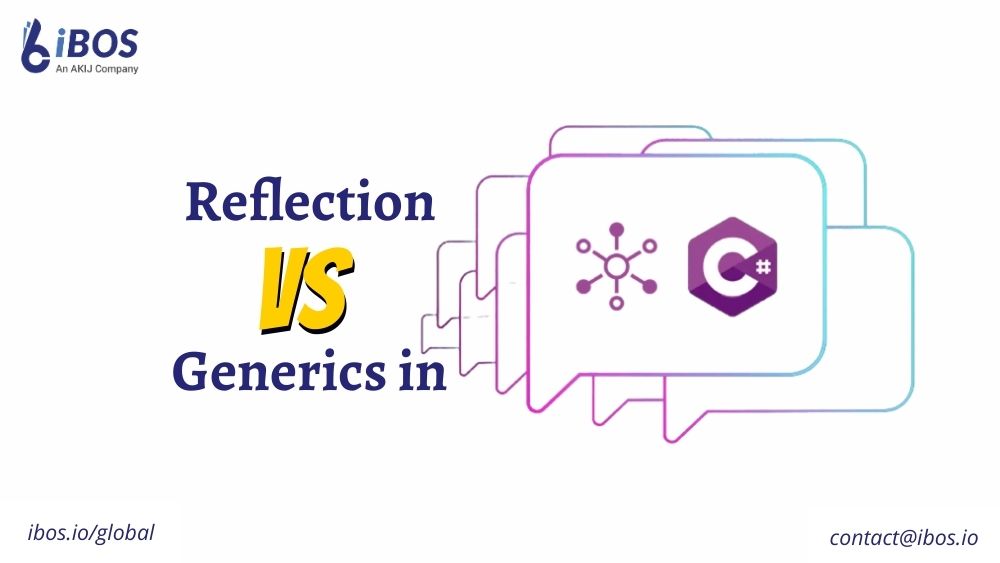With the aid of a variety of tools and methods, developers can create strong, effective, and scalable applications using the potent programming language C#. Reflection vs. generics: which technique is more frequently used in C# programming? Both of these techniques can be used to achieve similar results, but they each have their own unique strengths and weaknesses. In this blog, we will explore when to use reflection and when to use generics in C#.
Generics, on the other hand, is a technique that allows developers to write reusable code that can work with any type. It enables developers to create classes, methods, and interfaces that can be parameterized with one or more types.
It’s important for developers to understand reflection vs. generics and when to use which technique in C#. It’s important for developers to understand when to use each technique to build better software. In this blog, we’ll explore the benefits and drawbacks of reflection and generics in C# and provide examples of when to use each technique.
Reflection in C#
Reflection is a technique that allows developers to inspect and manipulate objects at runtime. It enables developers to access information about a class, its properties, methods, and fields, and also allows them to create instances of objects dynamically.
Reflection is a powerful technique that allows developers to inspect and manipulate objects at runtime. Reflection enables developers to access information about a class, its properties, methods, and fields, and also allows them to create instances of objects dynamically. Reflection can be useful in a variety of scenarios, including when working with third-party libraries or when building generic frameworks that work with unknown types.
When to use Reflection in C#
Reflection is particularly useful when the developer needs to work with an unknown type or when the type of an object is not known until runtime. For example, reflection can be used to:
- Instantiate an object of an unknown type at runtime.
- Retrieve metadata about a type, such as its properties, methods, and fields.
- Invoke methods on an object that are not known at compile-time.
- Dynamically create types at runtime.
- Build generic frameworks that work with unknown types.
Generics in C#
Generics is a powerful feature in C# that allows developers to write reusable code that can work with any type. Generics enable developers to create classes, methods, and interfaces that can be parameterized with one or more types. By using generics, developers can create more flexible, efficient, and type-safe code.
When to use Generics in C#
Generics are particularly useful when the developer needs to write code that works with different types. For example, generics can be used to:
- Write reusable code that can work with any type.
- Improve type safety and reduce the likelihood of runtime errors.
- Create collections that can hold objects of any type.
- Write algorithms that can work with different types of data.
- Create interfaces that can be implemented by different classes.
When to use which technique in C# – Reflection vs. Generics
While both reflection and generics can be used to achieve similar results, they each have their own unique strengths and weaknesses. In general, reflection is more suitable for scenarios where the type of an object is not known until runtime or when working with third-party libraries. Generics, on the other hand, are more suitable for scenarios where the developer needs to write reusable code that works with different types.
In conclusion, reflection and generics are powerful techniques that can help developers write more efficient, scalable, and flexible code in C#. By understanding the strengths and weaknesses of each technique, developers can choose the right tool for the job and build better software.









